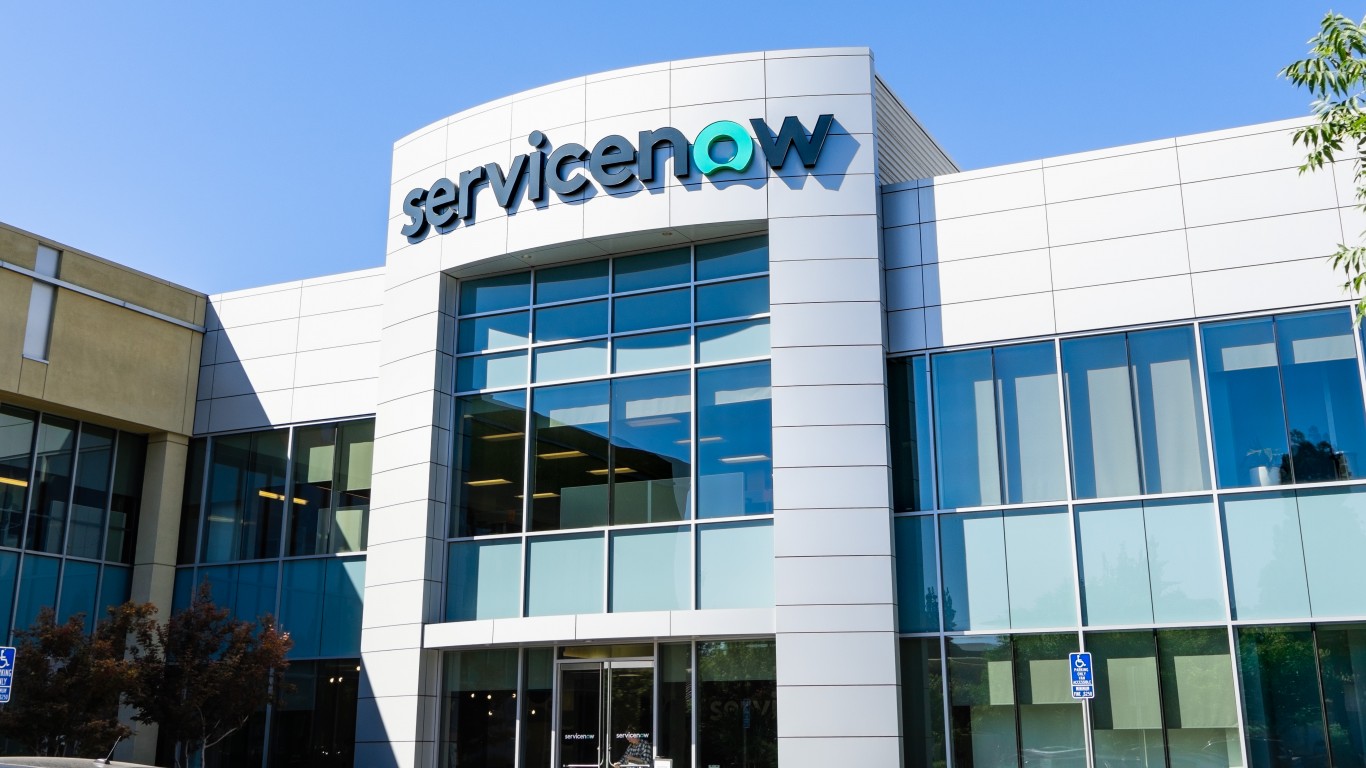Investing
3 Reasons ServiceNow Will Be Next to Issue a Stock Split

Published:
Last Updated:

24/7 Wall Street Insights
As nations grow in power and scope, the bureaucracy and administrative duties needed to manage organizations in both the private and public sectors have continued to expand exponentially since the late 18th century. Recordkeeping on paper led to huge libraries of documentation that still have far to go in being digitized for more accessible catalog storage. The digital era has given rise to even more complex workflows, especially as corporations have become transnational in operation and ownership.
In order to help navigation through the Byzantine digital public and private corporate structures along with the corresponding labyrinths of documentation, a number of companies have emerged in the IT Service Management sector. These companies include familiar names like: BMC Helix ITSM, Broadcom, SAP, Jira, DocuSign, and ServiceNow (NYSE: NOW).
An S&P 500 member, ServiceNow also was listed as the top innovative company of 2018 by Forbes. It has a number of factors of late that, when added to the equation, make a strong case for a forward stock split announcement in 2024.

ServiceNow was originally founded in San Diego, CA as Glidesoft Inc. by Fred Luddy 9current ServiceNow Chairman) in 2003. Luddy had served as CTO for IT service company Peregrine Systems, which went out of business after an accounting scandal. With the help of venture capital from JMI Equity, Glidesoft would relocate to Santa Clara as ServiceNow, expand to Chicago, New York, Atlanta, London, and Frankfurt, and launch its IPO in 2012 with Morgan Stanley.

ServiceNow’s technology operates in what has been described as “Platform-as-a-Service” or PaaS. Operating exclusively in the cloud, enterprise and technical management systems, including IT management and Customer Help functions are all bundled into the system and customized for each client.
The ServiceNow platform lives in the cloud on a Configuration Management Database (CMDB). The CMDB houses master, transactional, and enterprise data, and tracks all laptops, smart phones, and dedicated desktop computer stations connected to the customized client ServiceNow software from which those devices may receive and send data.
The data itself is housed in different application modules that are organized according to the client’s needs. Some of the module examples might be categorized as:
The software analyzes and delivers quantitative reports based on management executives’ data assessment requests.

ServiceNow has forged a position for itself as one of the premier IT Service Management companies in the sector. It has accomplished a number of milestones that has propelled its stock to high ROI profitable levels, but also has made the right moves to forge ahead towards even bigger and better horizons. As a result, there are several market, corporate, and financial reasons that could justify a forward stock split announcement in the not too distant future.
Additionally…
Finding a qualified financial advisor doesn’t have to be hard. SmartAsset’s free tool matches you with up to 3 fiduciary financial advisors in your area in 5 minutes. Each advisor has been vetted by SmartAsset and is held to a fiduciary standard to act in your best interests. If you’re ready to be matched with local advisors that can help you achieve your financial goals, get started now.
Thank you for reading! Have some feedback for us?
Contact the 24/7 Wall St. editorial team.